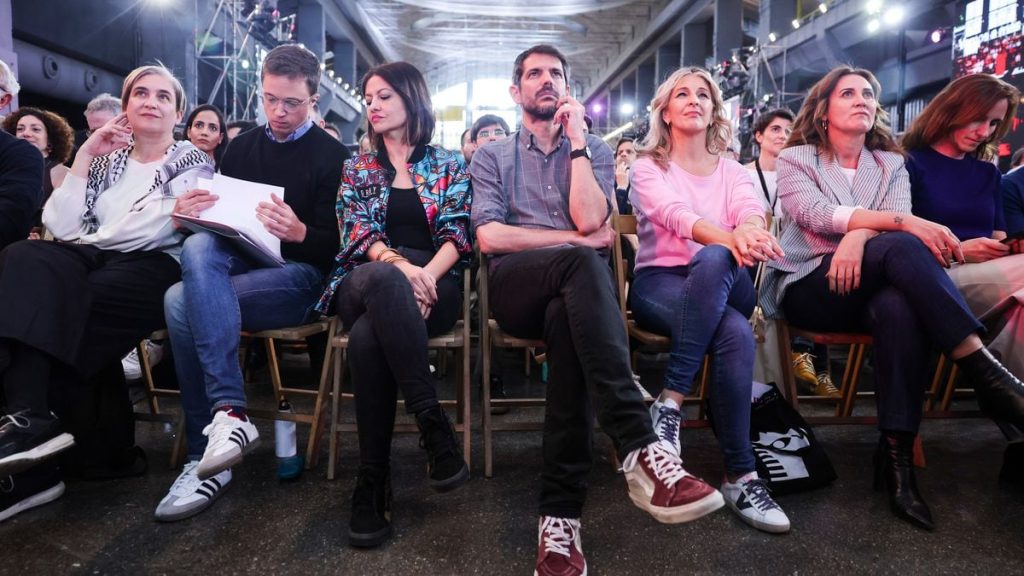Several parties within Sumar have been increasing pressure in recent hours to define a joint candidacy for the European Parliament as soon as possible. The elections on June 9 will be a decisive test for Yolanda Díaz’s party, which will be competing with Podemos led by Irene Montero at a time when they lack projection in the Government. Other organizations within the group, some of which already have presence in Strasbourg, are also affected by the negotiations with the Sumar leadership, which have been stagnant with no apparent progress. Parties such as Izquierda Unida and Compromís have raised the stakes, with calls for a resolution to be reached this week.
The main issue at hand is the distribution of positions on the ballot, as there are more parties vying for a spot on the candidacy than there are available seats. The coalition includes Sumar, Izquierda Unida, Catalunya en Comú, Compromís, Más Madrid, and Equo, a complex puzzle involving very different organizations. Initial plans included Estrella Galán as the top candidate, with María Eugenia Rodríguez Palop potentially as the second candidate. However, with limited seats available, negotiation for positions three, four, and five is also a challenge, with only four seats likely to be available. Compromís is considering options, as the position on the ballot directly affects their decision to run separately or within the coalition.
Izquierda Unida has expressed a desire for a unified candidacy, citing their experience and the need for a strong presence in the European Parliament. With historical representation in the Europarlamento, IU has certain electoral rights that would be lost if they were to pursue an independent candidacy. The internal struggles within IU, coupled with leadership changes, have further complicated negotiations within Sumar. The gender balance on the candidate list is also a concern, as more male candidates are currently in the running. Time is of the essence as Sumar navigates these challenges to finalize the candidate list.
The internal dynamics within the different parties are also playing a role in the negotiations, with individual interests and aspirations influencing the final decisions. Compromís, for example, has to establish their position within the coalition and make a decision soon regarding their candidate. As the discussions continue, the involvement of key figures such as Josep Vendrell and Carlos Corrochano from Díaz’s team adds another layer of complexity to the negotiations. Balancing competing interests and ensuring a diverse and representative candidate list is crucial for Sumar as they work against the clock to finalize their choices.
The upcoming elections on June 9 are a critical moment for all parties involved, with the need to present a united front and a strong candidate list to maximize their chances of success. The pressure is mounting as negotiations continue, and the clock is ticking for Sumar to reach an agreement that satisfies all parties involved. The outcome of these discussions will not only impact the European Parliament elections, but also have broader implications for the political landscape in Spain and beyond. With various interests at play and limited positions available, finding common ground and accommodating diverse perspectives will be key to the success of the Sumar coalition.


